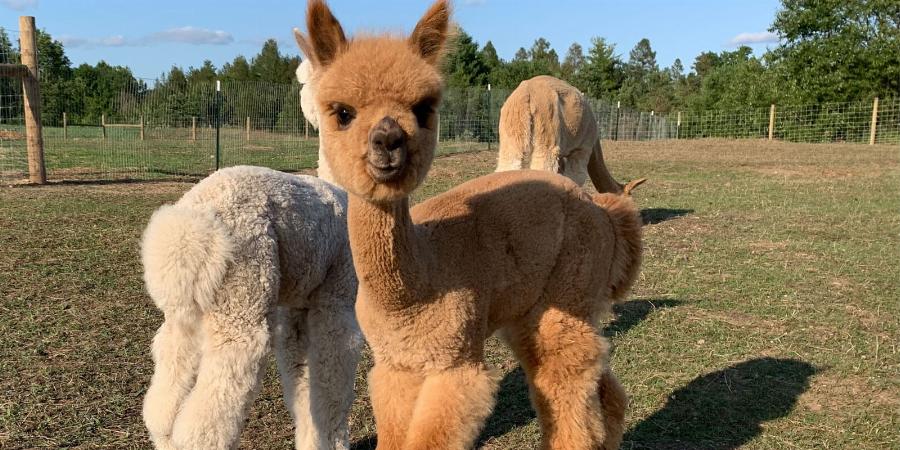Can alpacas eat acorns? The simple answer is no. While these adorable, fluffy creatures love to graze, acorns are a definite no-no for their diet. Knowing what alpacas can and can’t eat is vital for their health and well-being, so let’s delve deeper into the world of alpaca nutrition and understand why acorns pose a threat.
Origin and Significance of Alpacas
Alpacas originate from the Andes Mountains of South America, specifically Peru, Bolivia, Chile, and Ecuador. For centuries, they’ve been treasured by Andean cultures not only for their luxurious fleece but also for their gentle nature. These camelids, close relatives of llamas, have played a crucial role in the livelihoods of Andean communities, providing both a source of income and a sustainable way of life. Their historical significance is deeply woven into the fabric of Andean traditions and continues to impact the region today.
Types of Alpacas and Their Characteristics
There are two main types of alpacas: the Suri and the Huacaya. Suri alpacas are known for their long, silky, dreadlock-like fleece that hangs down in lustrous locks. Huacaya alpacas, on the other hand, have a dense, crimpy fleece that gives them a fluffy, teddy bear-like appearance. Both types come in a wide array of natural colors, from classic white and beige to rich browns and blacks. Understanding the unique characteristics of each breed helps appreciate the diversity within the alpaca world.
Alpaca Care and Husbandry: Why Acorns are Dangerous
Proper alpaca care is essential for their health and longevity. This involves providing them with a suitable diet, regular health checks, and a safe, clean environment. A key aspect of alpaca husbandry is understanding their dietary needs. Their primary food source should be good quality hay, supplemented with pasture grazing when available. So, can alpacas eat acorns found scattered on the pasture? Absolutely not. Acorns contain tannins, which are toxic to alpacas and can cause digestive issues, kidney problems, and even death. Therefore, it’s crucial to keep acorn-producing trees away from alpaca pastures.
 Alpacas Grazing Safely in an Acorn-Free Pasture
Alpacas Grazing Safely in an Acorn-Free Pasture
What do Alpacas Eat?
Alpacas are herbivores, primarily grazing on grass and hay. They can also enjoy small amounts of fruits and vegetables as treats, but these should be given in moderation. A balanced diet rich in fiber is crucial for their digestive health.
How to Prevent Acorn Poisoning in Alpacas
The best way to prevent acorn poisoning is to remove oak trees from alpaca pastures or ensure alpacas don’t have access to areas where acorns fall. Regularly inspect pastures and remove any fallen acorns to minimize the risk.
The Alpaca Industry and Its Products
The alpaca industry is a thriving global market, primarily driven by the demand for their luxurious fleece. Alpaca fiber is known for its softness, warmth, and hypoallergenic properties, making it a highly sought-after material for clothing, blankets, and other textiles. From luxurious sweaters and scarves to cuddly toys and home décor, alpaca products are appreciated worldwide for their quality and unique characteristics. Panchita’s own line of alpaca products showcases the versatility and beauty of this incredible fiber.
 High-Quality Alpaca Products from Panchita
High-Quality Alpaca Products from Panchita
What makes Alpaca Fiber so Special?
Alpaca fiber is incredibly soft, warmer than sheep’s wool, and naturally hypoallergenic, making it ideal for sensitive skin. Its unique properties make it a highly desirable material for various textile applications.
Where Can I Buy Alpaca Products?
You can find high-quality alpaca products, including yarn, clothing, and accessories, at lovepanchita.com. We offer a wide selection of beautifully crafted items made from the finest alpaca fleece. Supporting Panchita means supporting sustainable alpaca farming and the preservation of Andean traditions.
Interesting Facts and Myths about Alpacas
Alpacas are fascinating creatures with unique behaviors and characteristics. One interesting fact is that they communicate through a series of hums, clicks, and body language. Contrary to popular belief, alpacas are not aggressive animals. They are generally gentle and curious, making them delightful companions. However, like any animal, they can become protective of their young or territory. Dispelling common myths about alpacas helps foster a better understanding and appreciation for these gentle giants.
 Understanding Alpaca Communication and Behavior
Understanding Alpaca Communication and Behavior
Are Alpacas Good Guard Animals?
While not traditionally guard animals, alpacas can be effective in deterring predators due to their alertness and protective instincts. They often raise the alarm with loud, distinctive calls, alerting other animals to potential danger.
Conclusion
So, can alpacas eat acorns? We’ve established a resounding “no.” Protecting these gentle creatures requires understanding their dietary needs and avoiding harmful substances like acorns. From their origins in the Andes to the thriving global alpaca industry, these animals continue to captivate and inspire. By supporting sustainable alpaca farming and appreciating the unique qualities of alpaca fiber, we contribute to the well-being of both the animals and the communities that rely on them. Explore the world of alpacas further and discover the magic they bring to our lives. Don’t forget to check out the beautiful alpaca products available at lovepanchita.com and continue learning about these fascinating creatures. Can alpacas enrich your life? Absolutely!